St Vincent volcano: UN warns humanitarian crisis will last months
- Published
St Vincent coated in layer of grey as volcano continues to erupt
The humanitarian crisis caused by volcanic eruptions on the Caribbean island of St Vincent will last for months, a UN official has warned.
Didier Trebucq said nearby islands including Barbados, Antigua and Barbuda could also be badly affected.
He said the UN was setting up an international funding appeal, external.
About 20,000 people have been evacuated from their homes since La Soufrière volcano began erupting last Friday.
It had not previously erupted since 1979.
Mr Trebucq, the UN co-ordinator for Barbados and the Eastern Caribbean, said clouds of ash and smoke were continuing to pour from the volcano every day.
"We are expecting that continuous explosions and ash fall will continue over the coming weeks in Saint Vincent and the Grenadines, but also in neighbouring islands such as Barbados, which has also been severely affected... as well as Saint Lucia and Grenada," he told reporters.
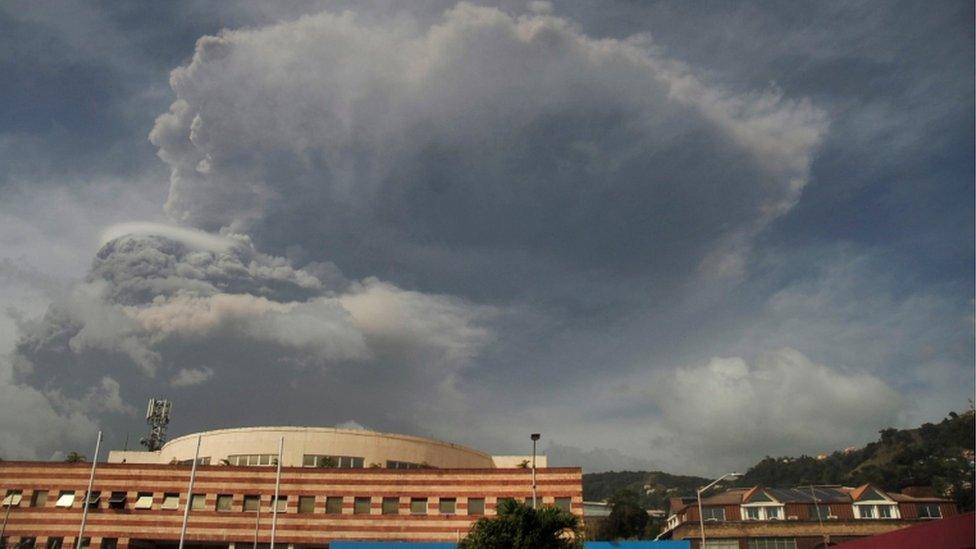
Ash and smoke from the volcano are billowing into the skies over St Vincent
He described the situation as "a crisis that will require a humanitarian response but also a response in terms of rehabilitation".
"This is a crisis that is going to last certainly more than six months in the sub-region, in Saint Vincent, and other islands," he said.
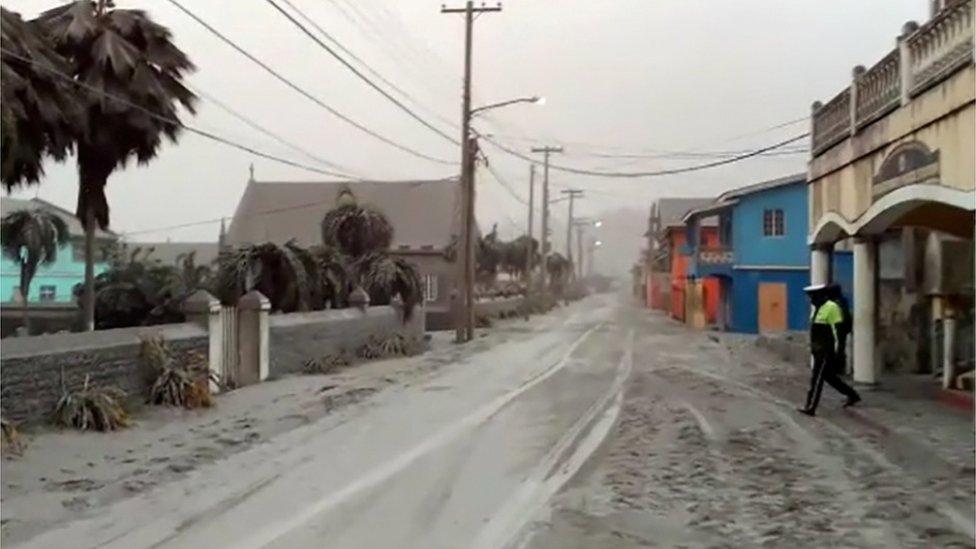
Layers of ash are covering roads and buildings in St Vincent
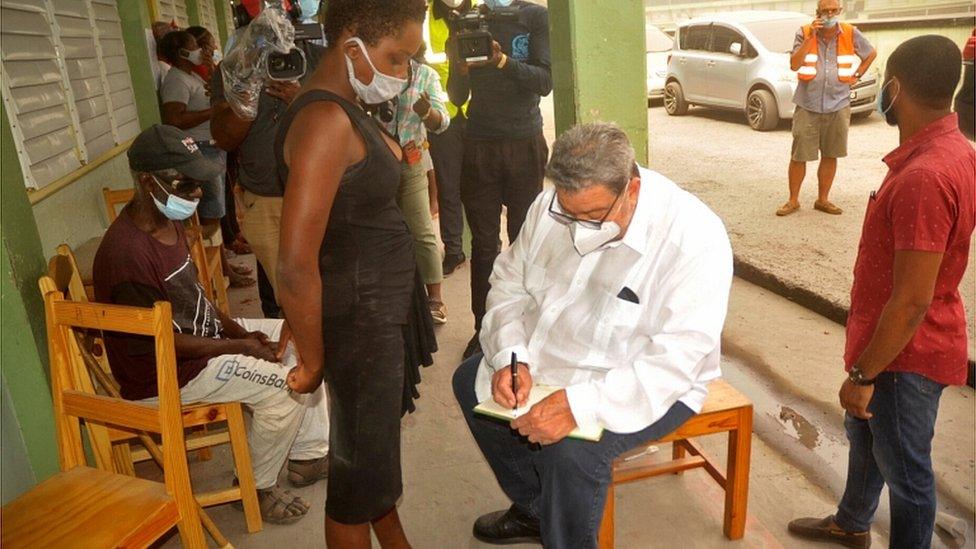
Prime Minister Ralph Gonsalves has been visiting shelters across the island
The UN says about 4,000 of those displaced are now living in 87 shelters - many of which lack basic services such as drinking water. Others have moved in with family or friends and some have taken boats to neighbouring islands.
Mr Trebucq said water provision was the main priority for aid teams, followed by shelter.
"The clean-up of the ashes, finally, is another important priority, in terms of environmental health but also clean-up to make sure that life can come back to normal outside the red zone as soon as possible," he added.
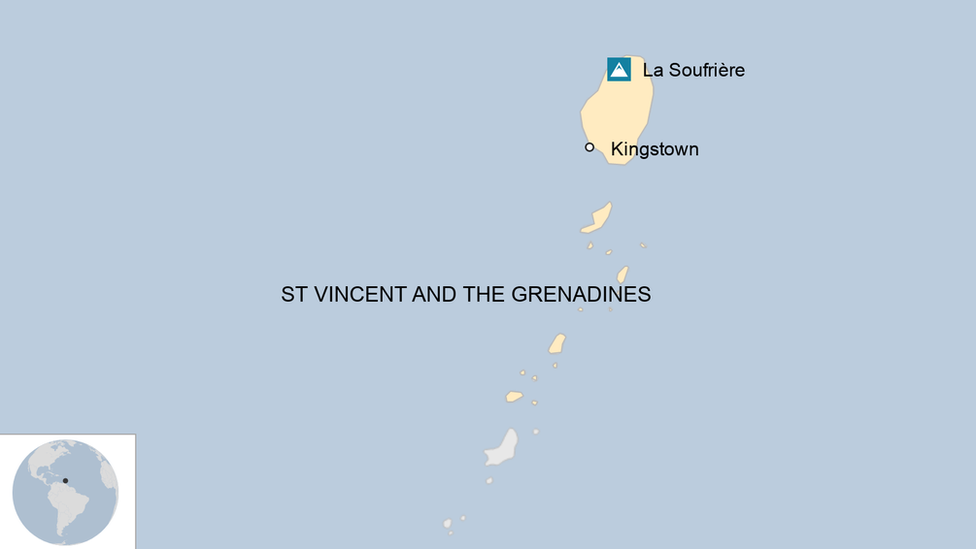
On Wednesday, Prime Minister Ralph Gonsalves said that despite the dangers many residents were choosing to stay on the island rather than be evacuated by ship.
"There are some people who want to go to different countries but it is not a large number," he told a TV programme in Grenada.
"They said they want to stay at home. I have been around several of the camps and that's the message."
When did the new eruptions begin?
The volcano had been dormant for decades, but in late 2020 it started rumbling and then began spewing steam and smoke.
The first sign that an eruption was imminent came last Thursday evening, when a lava dome became visible on La Soufrière.
Just before 09:00 on Friday (13:00 GMT), seismologists from the University of the West Indies confirmed that an "explosive eruption" was under way.
- Published11 April 2021
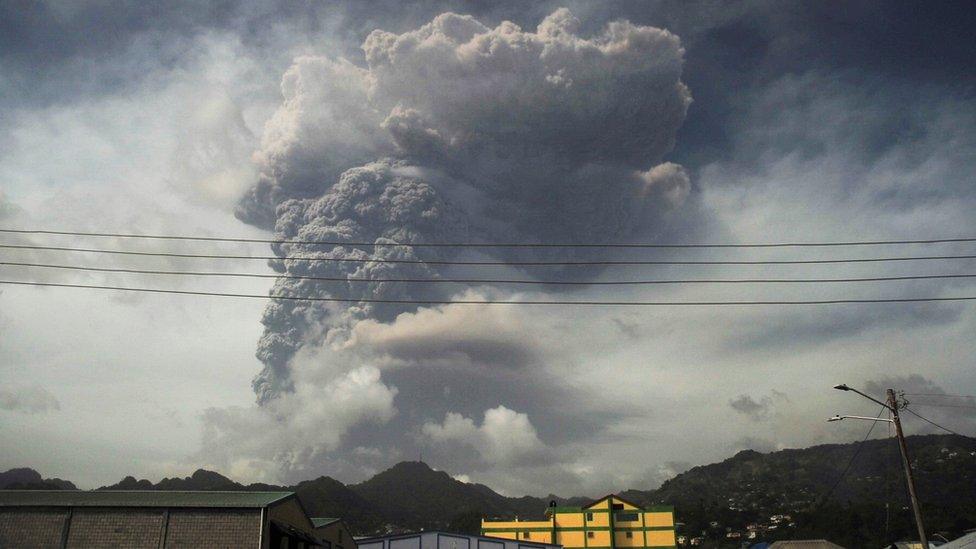
- Published9 April 2021
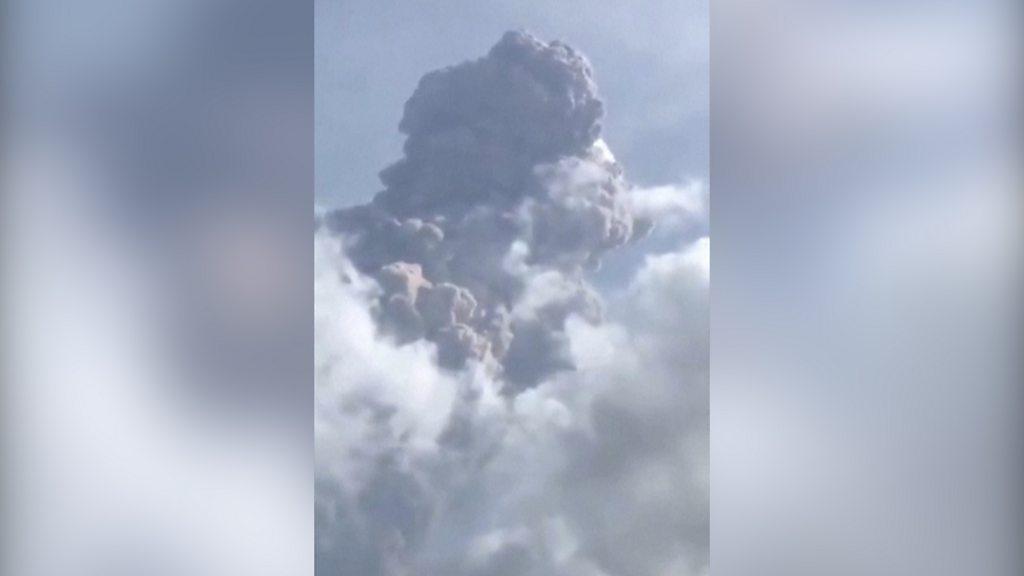
- Published31 May 2018